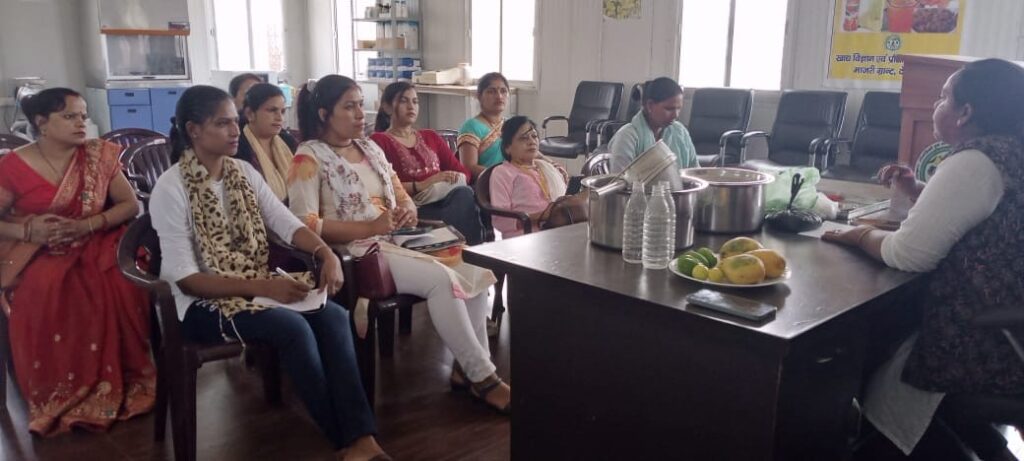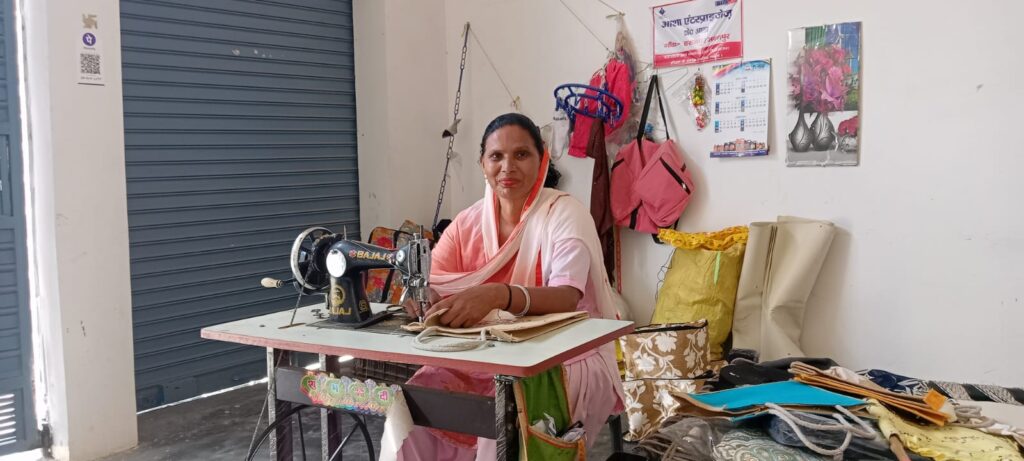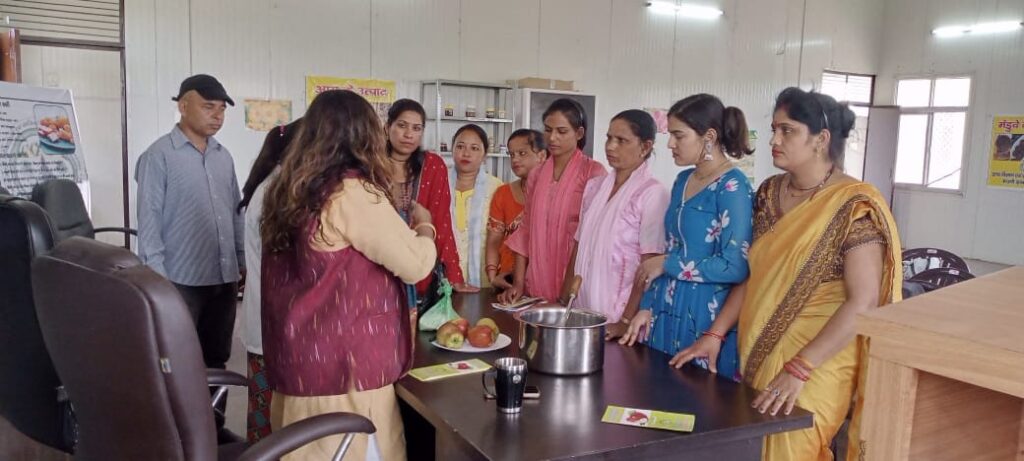Introduction:
Empowering women has long been recognized as a crucial step towards building stronger, more resilient communities. In this spirit, a small community facility centre was established to promote women’s empowerment by providing skill development and self-employment opportunities to unemployed women. This initiative aimed to address the economic challenges faced by women, particularly in rural areas, by equipping them with the skills necessary to become financially independent and socially empowered. The project focused on training women in the preparation of various food products, including pickles, jams, jellies, and juices, as well as handicraft items like jute bags. This approach not only created diverse income streams for economic independence but also fostered a sense of self-reliance and confidence among the participants.

Objectives:
- To empower unemployed women through targeted skill development programs.
- To create sustainable self-employment opportunities for women, enabling financial independence.
- To enhance the leadership and training capabilities of women trainers, creating a sustainable support system within the community.
Activities Conducted
- :Skill Development Training:
Hands-on training was provided to women in the preparation of various food items such as jams, jellies, pickles, marmalades, and juices. These sessions aimed to teach women the complete process, from sourcing raw materials to the final packaging and marketing of products. The training emphasized quality control, hygiene, and market competitiveness, ensuring that the products met market standards and attracted consistent customer demand. - Training of Trainers (ToT):
In addition to direct skill training, the project included specialized sessions for trainers. This approach aimed to build a network of women leaders capable of transferring their knowledge to others in their communities. By creating a pool of skilled trainers, the program ensured the sustainability of its impact, allowing the knowledge gained to spread organically throughout the community, fostering a ripple effect of empowerment. - Craft Training:
Recognizing the importance of diversifying income sources, the program also included training in the creation of handicrafts, including jute bags, decorative items, and small crafts. This component provided women with multiple avenues for income generation, enhancing their economic resilience and reducing their dependence on a single source of income. These skills also helped women tap into emerging markets for eco-friendly and handmade products, which are in high demand globally.
Outcomes:
• High Participation: A significant number of women participated actively in the training sessions, reflecting the program’s reach and relevance to community needs.
• Self-Employment: Approximately 60% of the women successfully started their own small businesses, producing and selling food products and handicrafts, significantly contributing to their household incomes.
• Empowerment and Confidence: The program profoundly boosted the self-confidence of participants, empowering them to become economically independent and socially active members of their communities.
Impact:
• Creation of sustainable livelihood opportunities for women, reducing economic vulnerability.
• Increased financial independence among women, contributing to their overall empowerment and improving their family’s quality of life.
• Development of a robust support network among trained women, fostering community growth, mutual support, and shared learning.
• Promotion of environmentally friendly practices through the production of eco-friendly products like jute bags, aligning with global sustainability goals.
Success Story: Making Jute Bags
Name: Asha Devi
Village: Hasanpur Madanpur, Bhagwanpur
Asha Devi lived in a small village where her husband’s income was not enough to support the family. With rising expenses and limited income, providing a good education for her children and managing household needs became increasingly challenging. This financial pressure pushed Asha to seek alternative sources of income.
Joining the Organization:
One day, Asha learned about the Village Development Society, which offered training in jute bag making. Without hesitation, she enrolled in the program, determined to create a better future for her family. The training covered every aspect of jute bag production – from selecting the right materials and designing patterns to stitching and marketing the final products. This comprehensive approach ensured that Asha and other participants gained the skills needed to compete in the marketplace.
Starting Her Own Business:
After completing the training, Asha invested her savings and leveraged the support from the Village Development Society to start making jute bags at home. Initially, she produced a small batch and sold them in local markets. Her hard work, combined with creative designs, quickly gained popularity, leading to increased demand for her products. As her confidence grew, she expanded her production capacity and started reaching out to larger markets and online platforms.
Steps Towards Success:
Gradually, Asha expanded her work, involving other women from her village. She formed a small group where women learned jute bag making and became self-reliant. This collaborative approach not only increased production capacity but also created a support network for continuous learning and mutual growth.
Current Situation:
Today, Asha Devi is not only self-sufficient but has also provided employment opportunities to many other women in her village. Her journey demonstrates that with determination, proper training, and the right guidance, any woman can create her own identity and improve her family’s financial situation. Asha’s story stands as a testament to the power of self-reliance and the transformative impact of skill development.
“Hard Work, Self-Reliance, and Success” – Asha Devi’s story is an inspiration for every woman.

Asha Devi

